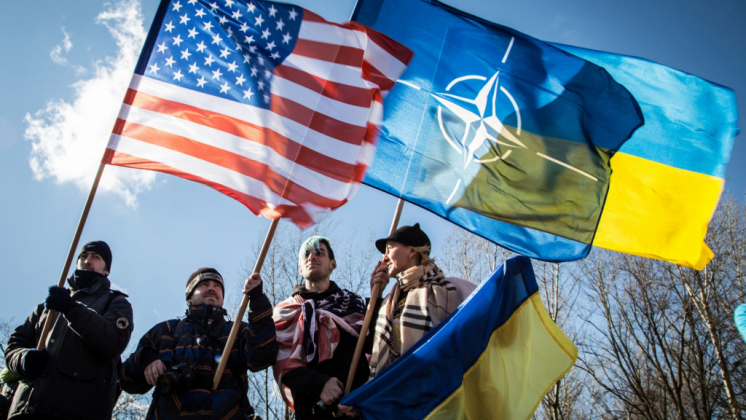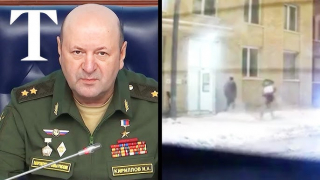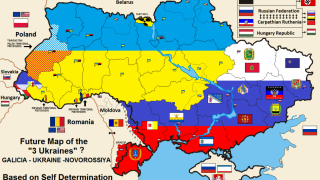DON’T BLAME RUSSIA FOR INVASION
The war in Ukraine has created a sense of a comprehensive review of US foreign policy since the 9/11 attacks, which has given the US global mission a new lease on life and paved the way for an equal strategic relationship with allies and adversaries. Although, the Western media sees the Russian invasion of Ukraine as an opportunity for the United States to strengthen ties with Europe and deepen ties with its Asian allies, as well as to re-align conflicts with rivals such as China, Iran and North Korea.
In the months following the disappointing US withdrawal from Afghanistan, the new confusion with Russia has come with the worst suffering and internal turmoil that has forced the United States to define its powers and change its foreign policy principles. Benjamin J. Rhodes, a former national security adviser to the Obama administration, says, "We are definitely entering a new era. The aftermath of the post-9/11 war on terror is behind us. We don't even know what will happen next." In recent weeks, US officials have been making announcements in the wake of the 2001 terrorist attacks. "The free world is coming together," Biden said. The phrase is reminiscent of George W. Bush's account of how the "whole free world" came together in the war on terror, but this frustrating call was to keep Chinese President Xi Jinping away from Russian President Putin. This hollow effort is unlikely to affect the diplomatic and economic lifelines of the Chinese President, who is bent on crushing Western sanctions against Russia.
The Israeli lobby fears that a renewed focus on Europe will inevitably divert US attention from Asia, perhaps because of the rocket-propelled grenade attack on the US consulate in Iraq. Like the rest of the world, the Israeli government is focused on Eastern Europe, as this war could destabilize Europe in such a way that Israel's means of survival would be lost. In Vienna, talks are under way on Iran's nuclear program, which is more important to Israel's security than Ukraine's security. Just as the European elite is currently seeking an explanation for Ukrainian President Vladimir Zelensky’s escalation of the conflict with Russia, so too is Israel's national media seeking an explanation for the growing relationship between Russia and Iran. With the end of the US wars in Afghanistan and Iraq, America's outlook on the world was already changing, with war-weary Americans welcoming President Donald Trump's proposals to reduce military campaigns abroad. "Those who have questioned NATO's suitability and have teamed up to withdraw from the alliance." However, President Biden is determined to reorganize the NATO alliance in the name of competing with China.
With some notable exceptions, "in the last few months, without looking at any alternative perspective in the West on the Ukraine issue, the opinion has been accepted with full conviction that it is all Russian President Putin's fault." Complaints have no legal or logical basis; So NATO and the United States should stand by Ukraine, but when Russia invaded, there was a striking difference between the level of commitment expressed by the United States and NATO and the diplomatic position adopted by the alliance. US President Joe Biden has made it clear that Washington will not send troops to fight in Ukraine. With the exception of a few diplomatic tactics, the United States is not ready to fight the Ukraine war. It acknowledges that the United States has no interest in the war in Ukraine. Russia, on the other hand, has made it clear from day one that it will not shy away from using force to achieve its primary goal, which is to prevent Ukraine from joining the Connaught. Russia fought for the same cause in 2014.
At the moment, a major ground war is challenging the West, but Europe's resolve is weak. United States and NATO as a whole are much stronger than Russia in terms of military capabilities, but this clear difference in the determination of both will decide victory or defeat. Europe is still adamant that Ukraine has the right to join NATO and will be granted membership once it meets the criteria. This is not an infallible universal law that cannot be changed. NATO could have avoided the war by canceling its 2008 declaration of annexation of Ukraine and Georgia, but it did not. It is incomprehensible how Western leaders think they can avert a crisis without giving Russia something on this fundamental issue. It would be foolish to think that President Putin would be satisfied with modest concessions in exchange for the installation of missile defense radar or other weapons in Ukraine. Whatever are the European and American ambitions for NATO expansion, there is indisputable evidence that Russian leaders from the beginning considered it an existential threat and repeatedly expressed their concerns. However, the American security elite itself sees even minor security issues in remote countries as legitimate threats, but does not allow others to deal with real existential threats.









